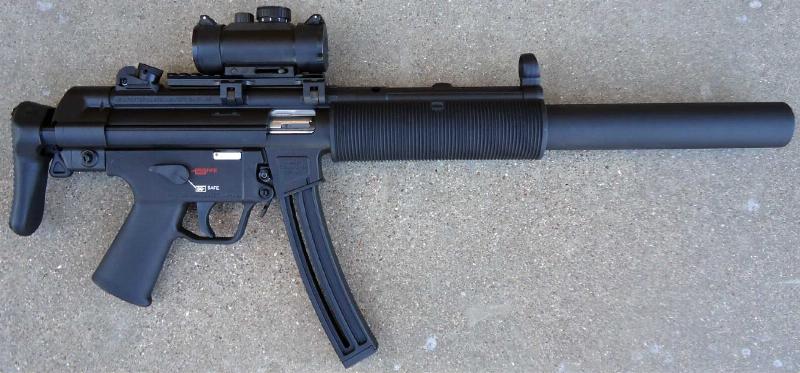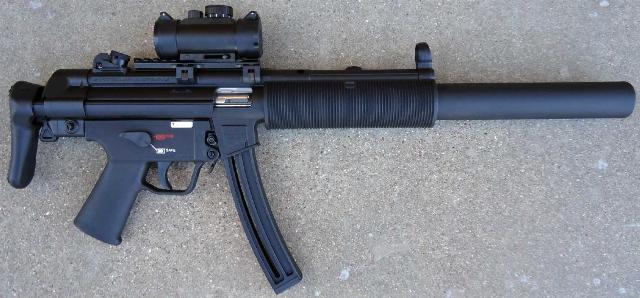


There’s a venerable, probably apocryphal, story about a leftist reporter—is there any other kind?—interviewing an elderly woman known for having an impressive gun collection. “What are you afraid of?” the reporter asked. “Not a damn thing,” she replied.
In a country with more guns than people (there were some 393 million firearms in civilian hands alone in 2017, according to the Small Arms Survey), it’s easy to see why your husband might feel that owning one himself could give him some control, some shield against chaos. But your instincts are sound. As you’re aware, bringing a gun into our homes doesn’t seem to tip the odds in our favor. Studies show little evidence that guns protect against injury or loss during a crime. Instead, they raise the risk of harm within the household, through accidents, impulsive actions or suicide.
You’re imagining your regret were civic life to unravel, and you had failed to prepare. Maybe there’s a “Last of Us” scenario flickering in your heads, where bandoliered bad guys roam a collapsed society, but even then, I doubt that whatever firearm your husband is contemplating would help. In a world where some are armed to the teeth, being armed to your toes seems unlikely to do anything but escalate the dangers for you. What’s more to the point is that you feel safe in your city. Your recognition that guns bring more harm than good isn’t naïve. Real control lies in holding fast to your reasoned beliefs, not in giving way to fear.
— Kwame Anthony Appiah in My Husband Fears Political Violence. Should We Buy a Gun?
Let’s first explore reality. Credible, replicable studies indicate Americans use guns in legitimate self-defense as many as 2.5 million times every year. The Clinton Administration did a study on that subject, expecting to find evidence to support their anti-liberty/gun intentions. To their horror, they discovered 1.5 million self-defense gun incidents per year. They tried to bury their results, but they leaked.
For decades, anti-liberty/gun cracktivists have pushed the narrative that guns in the home are far more dangerous to those that live there than to criminals. There is no credible, replicable research that supports that narrative. And if they were right, their media would be trumpeting such incidents every day, but they don’t because they can’t.
Police officers would love to catch criminals in the act. They respond to dangerous calls as fast as they can, but there are few of them, many criminals, and when someone needs the police right now the police will virtually always get there in time to deal with what’s left. They know this all too well:
74% of felons polled agreed that “one reason burglars avoid houses when people are at home is that they fear being shot during the crime.”[22] * 57% of felons polled agreed that “criminals are more worried about meeting an armed victim than they are about running into the police.”

Graphic: H&K MP5SD6, Author
Reasonable fear is not only a powerful motivator it’s necessary for survival. Appiah provides a false choice. If one “reasons” guns are not only useless for self-defense in the home and elsewhere their reasoning is faulty. They’re trusting anti-liberty/gun propaganda rather than properly done, replicable research. Having a reasonable fear of crime—never unjustified paranoia—is likewise a necessary survival trait.
Reasonable fear does not drive one to unreasonable actions. It doesn’t force one to remain locked in their home or to imagine a UPS driver or a young lady delivering Girl Scout—or whatever they’re called these days—cookies are deadly threats. It does cause one to realistically assess potential threats and devise plans to avoid or counter them.
An entirely reasonable part of any self-defense plan includes obtaining an appropriate firearm, which for most will be an easily concealable and carried handgun. Equally important is obtaining professional training in the use of that handgun, and when the law allows its use in defense of self or others. Logically following is regular, correct practice to maintain necessary skills and build confidence. That’s important, because something else criminals have revealed is they carefully watch prospective victims. If they’re aware of their surroundings and confident, criminals will tend to seek easier marks.
Appiah is equally wrong in asserting owning and carrying a gun as I’ve described doesn’t give one “…some control, some shield against chaos.” Referring to the credible research I’ve mentioned, one discovers that in the overwhelming majority of those up to 2.5 million self-defense incidents, not a shot was fired to put criminals to flight or to hold them for the police.
One should never rely on the mere sight of a gun to end such encounters, but the facts support “real control,” as opposed to “reasoned beliefs” which have no basis in reality.
On a different subject, if you are not already a subscriber, you may not know that we’ve implemented something new: A weekly newsletter with unique content from our editors for subscribers only. These essays alone are worth the cost of the subscription.
Mike McDaniel is a USAF veteran, classically trained musician, Japanese and European fencer, life-long athlete, firearm instructor, retired police officer and high school and college English teacher. He is a published author and blogger. His home blog is Stately McDaniel Manor.
